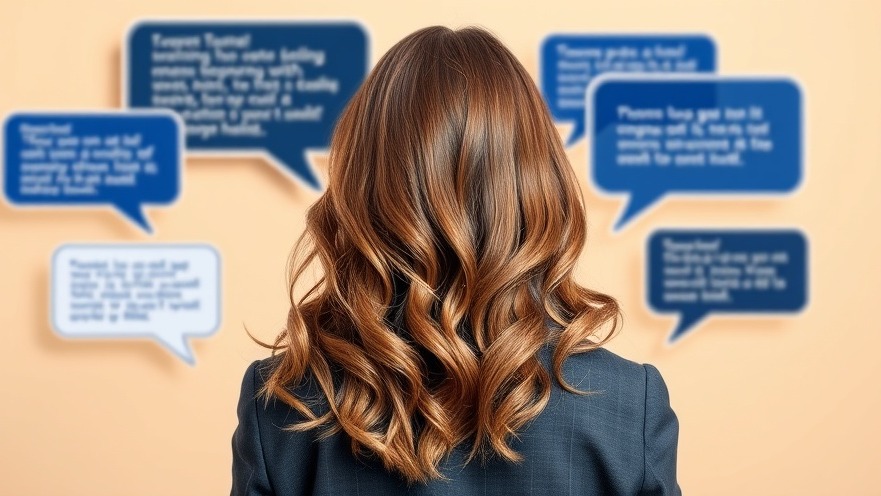
Why Conversations About Hair Loss Matter
In a world primarily focused on appearances, the impulse to comment on someone's hair—especially under conditions like illness—is as entrenched as it is problematic. When Kate Middleton debuted a new hairstyle recently, the internet reacted predictably, drawing conjectures not only about her look but about her health. This highlights a pervasive social issue: the belief that it is acceptable to scrutinize and speculate about someone else's body and appearance. Such comments can inflict harm, especially on those who have experienced hair loss due to reasons like illness or genetic conditions like alopecia. As a therapist specializing in body image, I know firsthand how deeply hair loss can affect one's sense of self.
The Emotional Weight of Hair
Hair is not just a feature; it is often a crucial part of identity and self-expression. For many, hair carries cultural significance and plays a vital role in how individuals see themselves and how they are perceived by others. When someone loses their hair—either suddenly or gradually—the emotional fallout can be severe. According to a study involving 5,553 patients suffering from hair loss conditions, nearly half experienced anxiety disorders linked to their situation. For many, the shocking shift in one's physical appearance can incite feelings of loss and despair, and the unsolicited probing questions often exacerbate these emotions.
Breaking the Cycle of Judgment
Despite the growth of the body positivity movement, the conversation still leans toward judgment rather than understanding. Studies suggest that instead of fostering acceptance, society tends to link bodily changes to illness, prompting misunderstandings. This misconception continues to ensnare figures like Middleton, reducing their identities to superficial elements, such as hair. Why should anyone feel obliged to justify their looks with answers about their health? This need for transparency in how people appear only fosters a culture of shame and leads to increased societal anxiety.
Understanding Alopecia Areata: The Journey of Acceptance
Alopecia areata, the condition that affects approximately 6.8 million people in the United States, can occur at any age and potentially transform how a person navigates the world. Personally, I have lived bald since age six, witnessing the reactions of others to my hair loss shaped my professional path as a therapist. It became evident that acceptance does not come easily and requires significant internal work. In a society quick to make assumptions about health and appearance, it is essential to reshape the narrative around hair loss to one that fosters empathy rather than judgment.
Moving Towards a Compassionate Narrative
Advocates for mental health and well-being have a responsibility to challenge harmful dialogues surrounding appearance. Education plays a significant role in this aim; understanding the different reasons behind hair loss can cultivate a more compassionate society. We need to center discussions around emotional wellness and body acceptance, with a goal of elevating personal responsibility in how we express our thoughts—especially online.
Encouraging Mindful Conversations
What we say can have profound effects, not just on the individuals we are commenting about but on our wider communities as well. Creating space for intentional dialogues that respect personal journeys will help nurture a sense of belonging and identity among those affected by hair loss or any other body-related issues. Instead of engaging in speculation, we might ask ourselves how we can support those navigating such challenges instead.
As we engage with each other—be it in real life or through digital mediums—let’s take a moment before we leap to conclusions or judgments about someone's appearance. A little compassion goes a long way in our collective journey towards acceptance.
 Add Element
Add Element  Add Row
Add Row 



Write A Comment